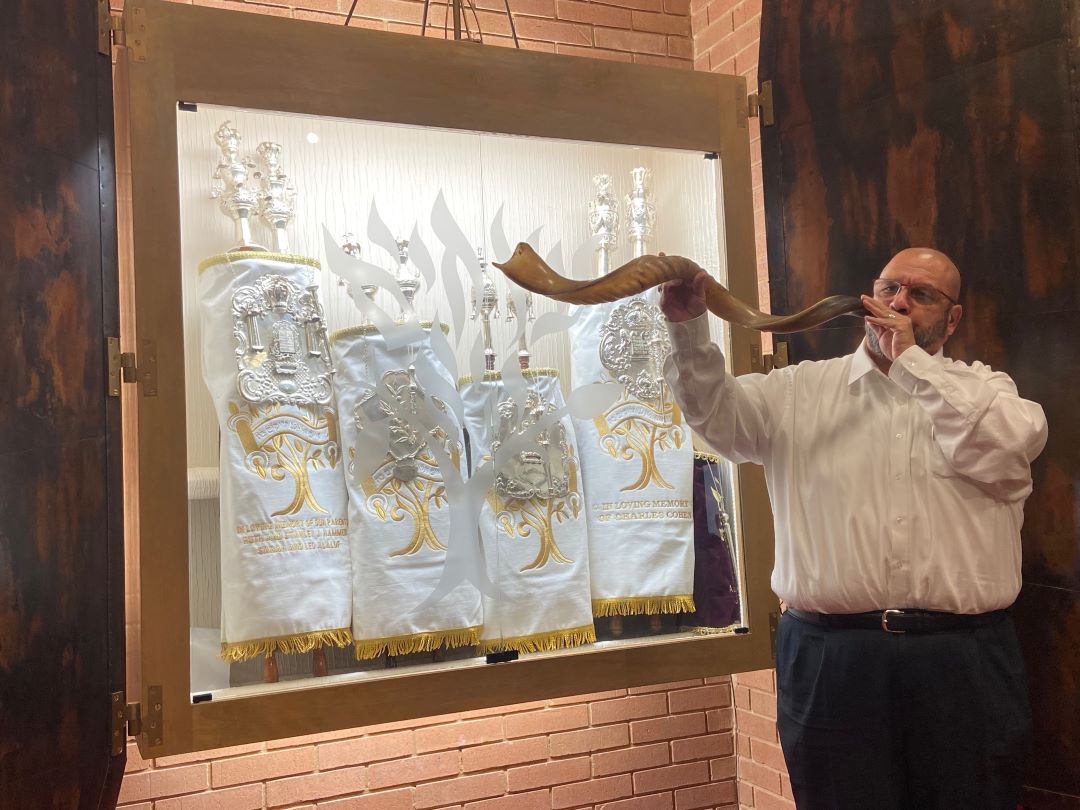While many people in the United States will observe Labor Day on Sept. 6, those of the Jewish faith will mark a new year on the Jewish calendar and go into what is known as the Days of Awe.
Rosh Hashanah, also known as the head of the year, starts on Monday, Sept. 6.
Because of COVID-19, the Congregation Children of Israel will observe Rosh Hashanah virtually rather than in-person, but a typical observance would include songs and prayers as well as food.
MORE: Augusta Jewish Museum Marks Completion of First Phase
“We bless each other with a sweet year, with a healthy year,” said Rabbi Shai Beloosesky of the Congregation Children of Israel on Walton Way. “But we also say, ‘How am I going to change?’”
Traditional meals are filled with symbolism, he said.
A few of the foods enjoyed on Rosh Hashanah include apple slices dipped in honey.
[adrotate banner=”19″]
Beloosesky said it might seem strange to add a sweet substance to something that is already naturally sweet, but the honeybee who gives the honey can also sting. It’s symbolic of life, which can be sweet, but also may hurt and sting.
A round challah is often eaten to symbolize the unending cycle of life and creation; and a fish head represents the start of the year and reflects on how the decisions made over Rosh Hashanah will affect the entire year.
The day is marked with the traditional blowing of a shofar, a musical instrument made from a ram’s horn.
Rosh Hashanah will last through Sept. 8 and leads to another important Jewish holiday — Yom Kippur, which begins on the evening of Sept. 15 and includes a 25-hour period of fasting as well as prayer and abstaining from work.
For Beloosesky, the most important aspect of the holiday is what goes on inside a person.
Rosh Hashanah is about feasting and joy, but it leads to the time of repentance.
[adrotate banner=”13″]
“Is this high holiday about asking for forgiveness? ‘Yes,’ but it’s about forgiving others and forgiving yourself,” he said. “God will forgive you of your sin, but you have to go and ask forgiveness (from people).”
The day will also be marked with prayer and times of worship which will be virtual again. While the services are important, Beloosesky believes what’s more important is the inner dialogue people have.
MORE: Faith: An Encounter in Jerusalem
People can hear what he as a rabbi has to say, but it matters more to him that people will hear what their inner voice says about doing what is right.
The shofar is once again blown to mark the end of Yom Kippur.
Charmain Z. Brackett is the Features Editor for The Augusta Press. Reach her at charmain@theaugustapress.com.
[adrotate banner=”51″]











